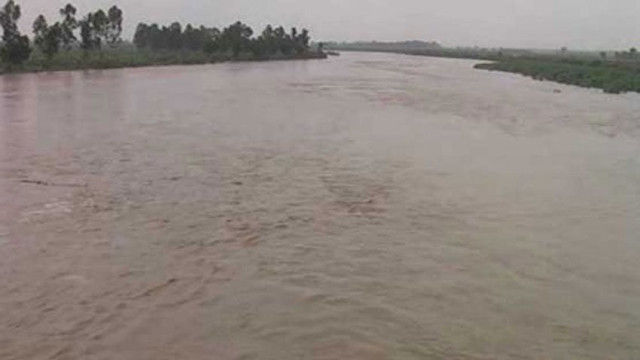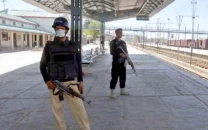Still recovering: Masteki village struggles with post-flood challenges
Even though the floodwater has receded, life will not be easy for the people of Masteki any time soon

Representational image. PHOTO: FILE
Even though being able to return to their villages brings a sigh of relief for many, life for the residents of Masteki, a village situated near the river, does not seem to be returning to normal anytime soon.
Allah Ditta, a local landlord from Masteki told The Express Tribune that despite the looming danger, the entire village – which comprises a population of around 250 people – did not submerge in floodwater. However, people had to be displaced to other areas for their safety.
He said that unlike other villages, residents of Masteki always have to face the hardest time because there is no dry route to connect Masteki with other villages. As a result, villagers have built a makeshift indigenous raft with bamboo to use it as the only source of transportation. He added that an engine has also been installed on the raft to speed up the journey.
Scattered heavy showers forecast for Karachi today
Allah Ditta shared that villagers of Masteki rely on rafts throughout the year for the supply of milk and other items to other villages and cities and there is no way for them to use the land because floodwater remains accumulated around the river for a long time.
“Farming and cattle raising are the only sources of livelihood for the residents, who own about a thousand cows and buffaloes. We sell the milk of our cattle to areas as far afield as Kasur. Therefore, even when the floodwater dries out, we will have to go through the hassle of crossing the river each day,” he said.
Allah Ditta explained that Masteki is based on dunes, mostly covered by trees and shrubs, so whenever it floods, it wreaks havoc to the entire village. At times, people remain stranded in the village for weeks when the monsoon season begins.
“A private telecommunication company has installed a tower in the village for communication purposes, however, when it floods, we become completely isolated from the rest of the province as signals remain suspended for many days,” Allah Ditta complained.
Sajid Ali, a youngster who operates the makeshift raft, said that he charges Rs1,000 for transporting a tractor or a vehicle on the raft, while people can transport their motorcycles to other villages by paying Rs100. Being the only means of transportation, villagers have no other option but to pay hefty fares to be transported from Masteki to other parts of the province.
“Passengers are charged Rs20-30 for their journeys. However, knowing that people in the village are very poor, we don’t charge elderly men because they don’t have a source of income,” Sajid said.
High-level flooding feared in Sutlej River
“The flood has left water levels very high this year and increased the distance between cities, hence we are operating the rafts on engines, which requires fuel. When the water levels are not very high, we use bamboo paddles to move the raft. This helps us cut costs,” he explained.
Haji Fateh Muhammad, another resident of the Masteki village, said that despite being low level, the recent floods affected Chanda Singh, Bhikuwind, Kamalpura and 12 other villages.
“The floods not only made it dangerous for people and their cattle to stay in the villages but the water ended up destroying our rice, fodder, maize and sesame seed crops. It is difficult to get fodder for the cattle now and we will have to face troubles throughout the year,” Haji Fateh lamented.
He added that there were no casualties in his village like the previous years, however, the body of a minor was found in the river, which was probably from India.
“I was very sad to see that. Flood costs precious lives every year and it is the poor who always get affected. We have buried the boy in a local cemetery,” Fateh said.
Published in The Express Tribune, August 30th, 2019.



















COMMENTS
Comments are moderated and generally will be posted if they are on-topic and not abusive.
For more information, please see our Comments FAQ